We are half of the Human Dimensions Lab at Oregon State University's Fisheries, Wildlife, and Conservation Sciences Department. Please see Dr. Megan Jones' site for the second half.
Principal Investigator (PI)
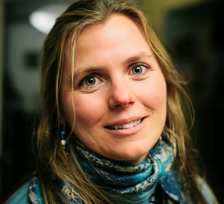
Dr. Kelly Biedenweg has a Ph.D. in the human dimensions of natural resource management. She currently works in the Puget Sound, Oregon and Chile looking at the link between ecosystem services and human values and wellbeing. Prior, she spent about ten years in Latin America researching community forest management in the Bolivian Amazon and environmental leadership development in Honduras. Dr. Biedenweg has a B.S. in marine ecology and an M.S. in conservation biology. In her spare time, Dr. Biedenweg likes to ride long distances on her road bike and make functional pottery while envying those with the patience for sculpting.
Contact: kelly.biedenweg "at" oregonstate "dot" edu
Contact: kelly.biedenweg "at" oregonstate "dot" edu
Research Coordinator
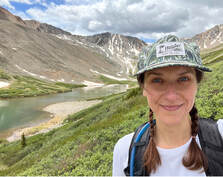
Dr. Kyle Clifton is the Social Science Research Coordinator with the Puget Sound Partnership of Washington State and a Human Dimensions Lab member. She has a Ph.D. in the human dimensions of natural resource management, a M.A. in conservation biology, and a B.S. in biology. Previously, she worked in conservation social science research and practice in the intermountain west and southeastern United States and in northeastern South Africa. As Research Coordinator with the Puget Sound Partnership, she manages social science integration across state, county, city, and federal partners in Puget Sound restoration planning, implementation, and monitoring. Kyle is also an instructor for FW560 Psychology of Environmental Decisions. When not at a desk, she loves illustrating greeting cards and playing outdoors with her Labrador.
Instructor
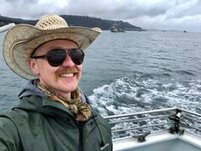
Vaughn Robison (MS and FWCS Certificate 2022) completed his Masters in Environmental Arts and Humanities and certificate in FWCS by examining how fishing communities use their values to communicate the social and economic impacts they experience from the Oregon Marine Reserves. He is a student alumnus of the Human Dimensions lab and is now a Human Dimensions Instructor for FWCS, focused entirely on our Ecampus courses: FW289: Communication Skills for FW Professionals; FW340: Multicultural Perspectives in NRM; and FW439: Human Dimensions of Fisheries and Wildlife (an intensive writing course). He is based on the Oregon Coast where he is a fifth-generation resident. His work as a communication researcher and practitioner has been used by state fish and wildlife agencies, non-profits, multi-national corporations, advertising agencies, and local news media. He enjoys navigating the social and ecological intersections of coastal lands and waters and connecting with the communities they support in his free time. He has a horse and dog who often join him.
Postdoctoral Scholar
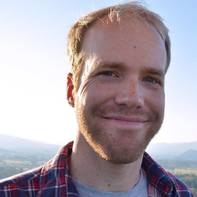
Dr. Brian Erickson is interested in understanding drivers of people’s conservation behaviors and lack thereof. He loves thinking about how worldviews, perceptions, and experiences influence our efforts to communicate with and change other peoples’ behaviors. Perhaps his least favorite phrase related to science communication is “if only they knew/cared, then they’d…” Brian’s master’s work at OSU focused on developing a high school ocean acidification curriculum. For his Ph.D., he will examine perceptions of marine protected area management, with an emphasis on trust and distrust, along the US West Coast and in East Africa (in collaboration with the SMART Seas Africa Network – smartseas.org). Brian has a highly varied professional background with an emphasis on formal and informal education and research. He has a BA in biology, an MS in teaching, and an MS in marine resource management. Away from research, Brian is a new dad who enjoys watching his son grow. When possible, he tries to get outside to whitewater kayak, hike, bike, and garden. Find him @Erickson_BrianD
Graduate Students
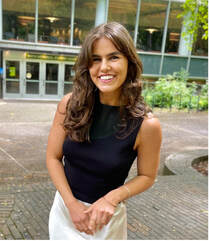
Krista Harrington (PhD student) is an interdisciplinary-trained geographer, bringing a political ecology lens to her academic interests in water resource governance, collaborative governance, climate resilience, and fisheries. Her approach to research is largely inductive, focusing on what we can learn from place-based contexts and persons’ lived experiences. She has worked under tribal entities, federal agencies, and at university laboratories but finds collaborative roles the most fulfilling. Krista earned her MS in Geography at Portland State University (PSU) under Dr. Alida Cantor and earned her BS at Colorado State University in the department of Fish, Wildlife, and Conservation Biology. Krista’s master’s work at PSU focused on politics and alliances surrounding the Snake River dam removal proposal by US Congressman Simpson, which uncovered the ongoing conflicts as complex socio-ecological tradeoffs. For her PhD she will be looking at the intersections of climate change and human wellbeing in the Puget Sound and beyond. Krista will work with Puget Sound partners to translate her research findings into policy decisions and planning support. In her spare time, you can catch Krista backpacking, weightlifting, kayaking, at the beach with a book, or surrounded by dogs.
Alumni

Devon Barone (MNR 2023) completed her MNR capstone developing indicators of human well-being for two marine protected areas in the Magallanes Region of southern Chile.

Isabel Justiniano (MS 2023) completed a MS thesis on Latinx environmental beliefs and recreation activities in the Willamette Valley. She is currently a Program Coordinator for the Willamette Resources & Educational Network.

Karin Swarbrick (Professional Science Masters student, 2022) develops communications products to enhance understanding of complex subjects and fosters appreciation for wildlife and the natural environment.

Brian G. Katz (Research Assistant, 2020-2022) is a web cartographer and human geographer who studies social vulnerability and adaptation to climate change.

David Trimbach, Ph.D. (Postdoc and Research Associate, 2017-2022) is a community based researcher with expertise in human geography and sense of place. He is now Conservation Social Scientist at Washington Department of Fish and Wildlife.
Allison Kurtz (Undergraduate Honors Student 2021) completed a policy analysis of the actions proposed by the Southern Resident Orca Taskforce for her undergraduate thesis. She plans on applying to grad school sometime next year

Eric Wade, Ph.D. (MS 2018, PhD 2021) completed his PhD on decision making in Jamaican small-scale fisheries. He is now an Assistant Professor at East Carolina University's Department of Coastal Studies

Brittany King, Ph.D. (PhD 2021) completed her PhD on the social identities of underrepresented populations in the marine, aquatic and fisheries sciences. She is now an Environmental Justice Specialist for NOAA.

Whitney Fleming, Ph.D. (PhD 2021) completed her PhD on the relationships among perceived environmental governance and ecosystem services. She is a Visiting Assistant Professor at Queens University.

Alexa Ramos-Cummings (Masters of Natural Resource 2021) completed a capstone on human wellbeing (HWB) integration into environmental decision making within local watershed groups. She currently works for Snohomish County.

Hailey Kehoe Thommen (Honors Undergrad 2019 and Research Assistant) completed an undergraduate thesis and Research Assistantship using sentiment and emotion analysis around orca conservation and the role Native Americans in public survey responses. She continues working as a data analyst.

Jackie Delie (MS 2020) measured the concept of tolerance for wildlife and psychological predictors of tolerance, with specific attention to tolerance of black bears in Oregon. She is currently a Fulbright Scholar in Uganda.

Kerrick Robinson (MS 2018) focused his thesis on determining the factors that influence stakeholder preferences for salmon habitat management in the Quinault Indian Nation. Kerrick worked as a Human Dimensions scientist in North Carolina before moving on to a PhD program in Human Dimensions.
Kayla Cranston, Ph.D. (Postdoc 2016-2017) studies and creates tools to evaluate motivation for long-term engagement in environmental projects from a psychological perspective.